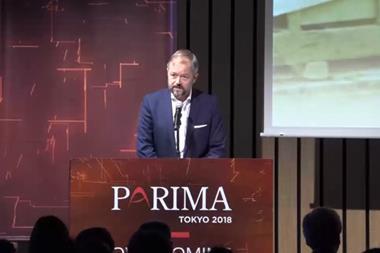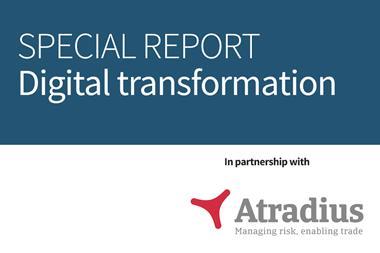D&O underwriters have been willing to sacrifice long-standing commercial relationships, revealed risk managers during a heated discussion on the harsh market
Wednesday 23 September 2020
11:30: Session: The harsh market
Underwriters have been accused of hiding behind the technology in order to avoid challenging conversations with insurance buyers at the latest renewals. This is according to a virtual panel discussion hosted by Airmic on the second day of Airmic Fest.
It is within the D&O class of business where the process has been most frustrating. According to Airmic’s most recent Pulse Survey, a fifth of respondents have experienced a rate increase of over 400% for D&O.
“I have prided myself as a broker, and now as a client, on building those multi-line, multi-year relationships with insurers and brokers,” said Josh Cryer, risk and insurance manager at Virgin Atlantic. “But D&O underwriters seem to be willing to sacrifice that huge commercial relationship we had.”
He explained the challenges the company had faced in securing coverage for Virgin’s directors & officers and accused insurers of hiding behind the pandemic to justify a punitive increase in rates and tightening of terms.
Cryer was eventually able to have a direct conversation with his carrier’s CEO, which helped the company secure its D&O coverage, albeit at significant restrictions in terms, conditions, pricing and capacity.
“My broker, who has 35 years’ experience in the industry, said he’d never seen such behaviour,” he said. “It was so easy to hide behind the COVID-19 insolvency type situation.”
“Yes it had been very widely reported in the press we were going through a difficult recapitalisation situation - and we kept insurers up-to-date on a regular basis - but far too often throughout the process it was almost a case that underwriters were just stepping away.”
“We had to communicate that to our leadership teams, which in D&O - as I found out - can get quite emotional.”
He said that some of the behaviours displayed by insurers had been “inexcusable at times” and went against the relationship nature of the business.
“We pride ourselves being an industry where we’re open and transparent, and we build long standing relationships so that in times of need we can draw on them. To have difficult discussions but have the insurer there ready to provide us with the cover we need, albeit at a fair and reasonable premium. But that all went out the window in my experience.”
The current working environment has made it easier for underwriters who do not want to respond to leave emails unanswered and not return phone calls.
“This just adds to the whole frustration to everything getting very late and last minute,” noted Tracey Skinner, group insurance director at BT and chair of Airmic.
No experience of a hard market
Some brokers have also struggled to rise to the challenges presented by the hard market, felt panellists.
Alex Frost, market development manager at Airmic referred to the Pulse findings, in which risk managers highlighted poor and late communication from insurers and brokers as a common issue.
Just 17% said they were ‘very satisfied’ with their insurer’s performance in 2020, with 65% ‘somewhat satisfied’ and 18% ‘not satisfied’. Brokers fare somewhat better with 35% ‘very satisfied’ and 55% ‘somewhat satisfied’.
Many brokers do not have the experience of navigating a hard market on behalf of their clients, observed Skinner.
Cryer revealed he had taken the difficult decision to replace Virgin Atlantic’s intermediary just three weeks prior to renewal.
“As clients going through a difficult renewal we knew we were in a tough situation financially, which contributed to the difficult renewal negotiations we were having,” he said. “We wanted constant communication, and when we changed broker that’s what we got. It has allowed us to continually strategise with our broker, and then to go to the insurers and have those direct conversations on a one-to-one basis.”
“As an ex-broker I now understand the value of the client being able to communicate and directly articulate their risk to the insurer,” he added.
Scott Feltham, group insurance manager at Compass Group, said the inability to “look into the whites of underwriters’ eyes” during lockdown had exacerbated an already challenging renewal situation. He accused underwriters of using the remote aspect of working to their advantage, noting they were “far less accessible” than pre lockdown.
He said there was a lack of “proper underwriting” going on in the market and that all too often underwriters have their cameras switched off during video-conferencing calls.
Certain nuances are missed during these conversations, thought Feltham, raising concern this “could impinge on our efforts to present the risk in the best possible light”.
“My major bugbear is insurers hanging their hat on COVID 19,” he added. “At Compass we know we’ve been hit hard by COVID, but we sought to go about explaining how resilient we think the organisation is - the strength of our balance sheet etc. But for me, it’s as if the market has made its mind up already.”
Remote working is not helping risk managers, agreed Skinner, but they can turn it to their advantage she thought.
“We all need to work together - brokers, insureds and insurers to really improve the situation. If you can get the engagement right and all agree to get on camera, there is an advantage and meetings are becoming far more efficient, which gives us more time. Everyone really needs to take responsibility that they keep that dialogue going with their key underwriters.”
“You need to keep the dialogue going, keep it flowing and that’s where you rely on the broker to make sure it happens,” agreed Feltham.
In partnership with






















No comments yet